You may already know that the foods and beverages you consume can significantly impact your scalp and hair health, as can topical applications of certain ingredients. However, the power of caffeine may surprise you. Since clinical evidence shows how the interaction of caffeine with the body can result in thicker, healthier hair, this science-backed ingredient is included in Divi’s Scalp Serum. Find out why this ingredient is so beneficial to the scalp and a healthy environment for hair growth, especially when integrated with other clean ingredients!
Why Apply a Product with Caffeine to the Scalp?
The topical application of caffeine may be particularly beneficial because hair follicles can absorb caffeine directly. Although you may wonder if a morning cappuccino could also do the trick, scalp benefits like facilitating hair growth and promoting circulation may be greater with the application of caffeine directly to the skin.
When applying a product, such as Divi’s Scalp Serum, you may experience the following clinically proven effects of caffeine:
- Protection of skin cells from UV rays
- Slowing down of your skin's photoaging
- Increase in the blood's microcirculation throughout your skin
- Stimulation of hair growth
What Other Science-Backed Ingredients May Enhance Caffeine’s Impact?
Here are four key ingredients that work synergistically with the caffeine in Divi’s Scalp Serum to help nourish the scalp, improve the appearance of thinning hair, and more.
How Does Copper Tripeptide-1 (GHK-Cu) Work Together with Caffeine to Support Scalp Health?
Peptides are amino acids that support the natural production of elastin and collagen. These connective tissues contribute to firmer and smoother skin. Recent studies suggest that copper peptides improve blood circulation in the skin, which helps to maintain blood vessel tissues. This nutrient-rich blood may stimulate hair follicles which can help promote new hair growth. Consequently, when copper tripeptide-1 is combined with caffeine, they can work together to help combat hair thinning and hair loss.
How Do Tea Tree Oil and Caffeine Promote Scalp Health?
Tea tree oil offers many benefits including reducing dandruff symptoms and scalp flaking, while lessening irritation and promoting scalp healing. It also helps promote hair follicle health through improving blood circulation in the scalp. Combining tea tree oil with caffeine and peptides further helps create a healthy environment for hair growth. Each ingredient clearly has its own notable features and hair benefits. Together, they improve the likelihood that those benefits can be enjoyed.
How Does Pairing Glycerin with Caffeine Support Scalp Health?
Glycerin has hydrating and antimicrobial properties that help to moisturize and soothe the scalp. These qualities may also help reduce frizzing and potential for hair thinning by lessening the likelihood of hair breakage. The caffeine and glycerin pairing means that these two ingredients can work together to aid in reducing scalp dryness or itchiness and in helping create a healthy environment for thicker, stronger hair to grow.
How Do Biotin and Caffeine Complement Each Other to Encourage Scalp Health?
Biotin is highly regarded for its potential to improve hair growth and reduce scalp inflammation. Its inclusion with ingredients like caffeine can help minimize any negative effects of DHT, specifically on hair follicle development.
In choosing Divi’s Scalp Serum, you are choosing a dermatologist-tested formula with science-backed ingredients that work together in support of your scalp and hair health. Caffeine and other ingredients, including copper tripeptide-1, tea tree oil, and more help cultivate a healthy environment for hair growth and may promote thicker, fuller, and healthier hair. Although Divi’s Scalp Serum is designed to deliver the exact amount of each ingredient to help with all of your hair needs, some people may have particular sensitivities to caffeine. Please remember to follow the provided dosage and application guidance, and check with your healthcare team to ensure that any addition to your hair or overall health routine is right for you.




































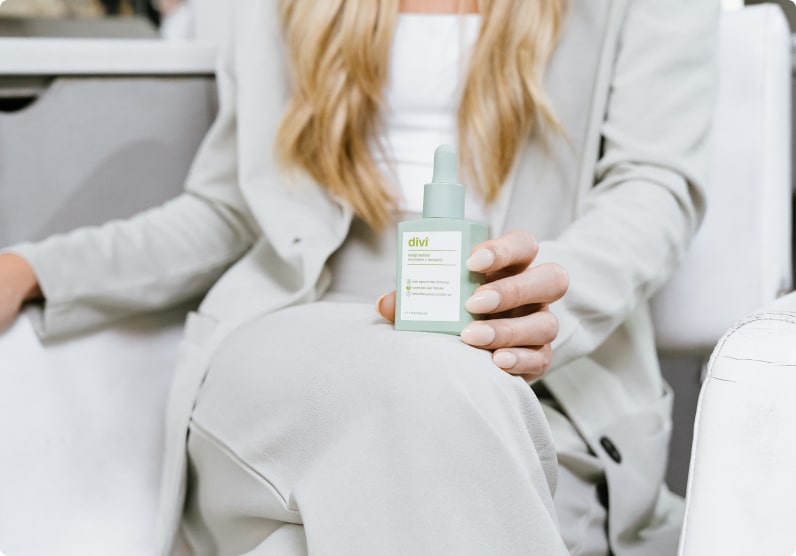
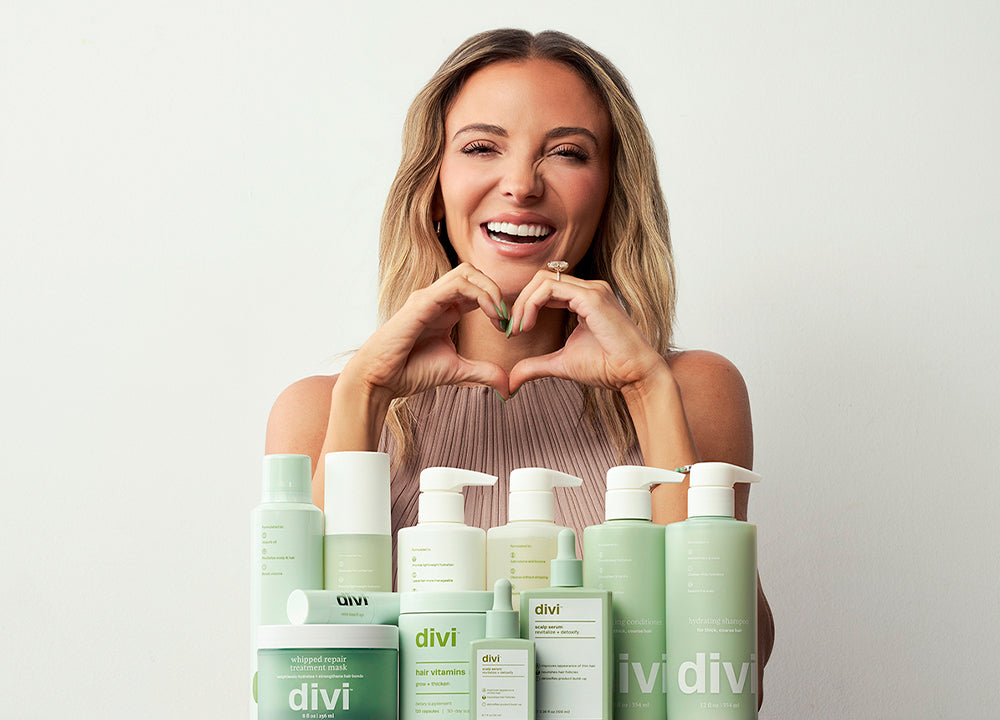
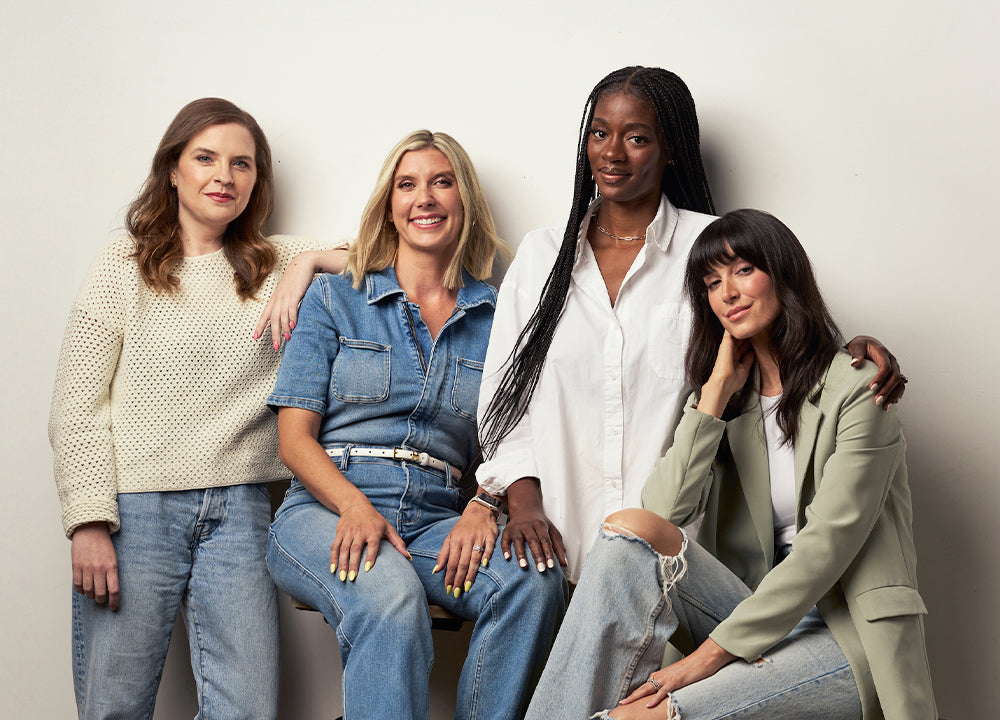
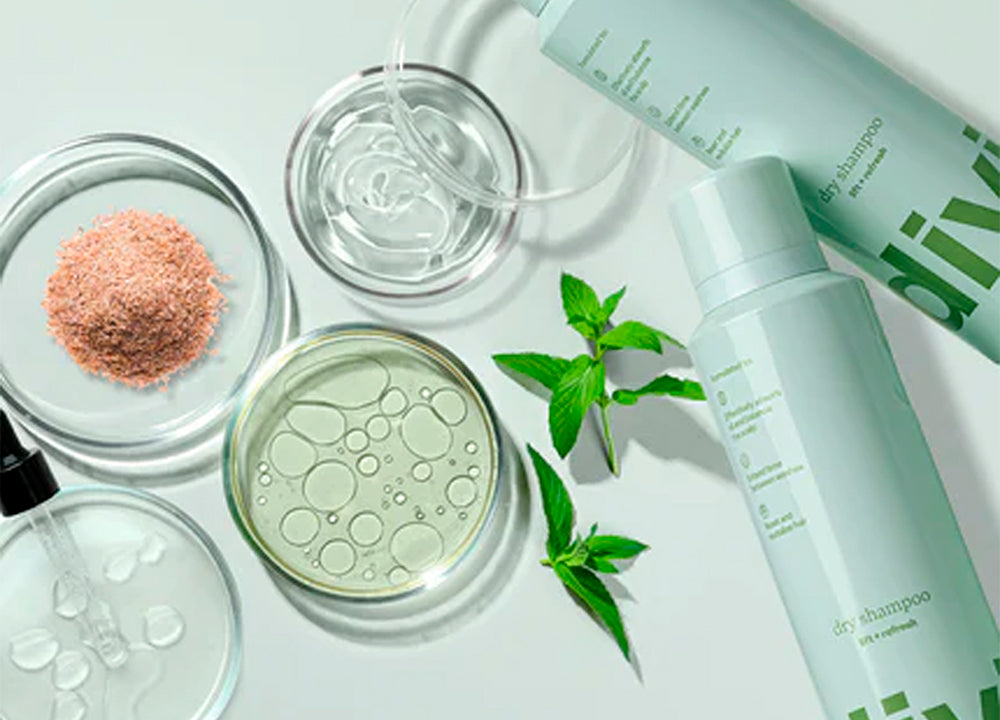

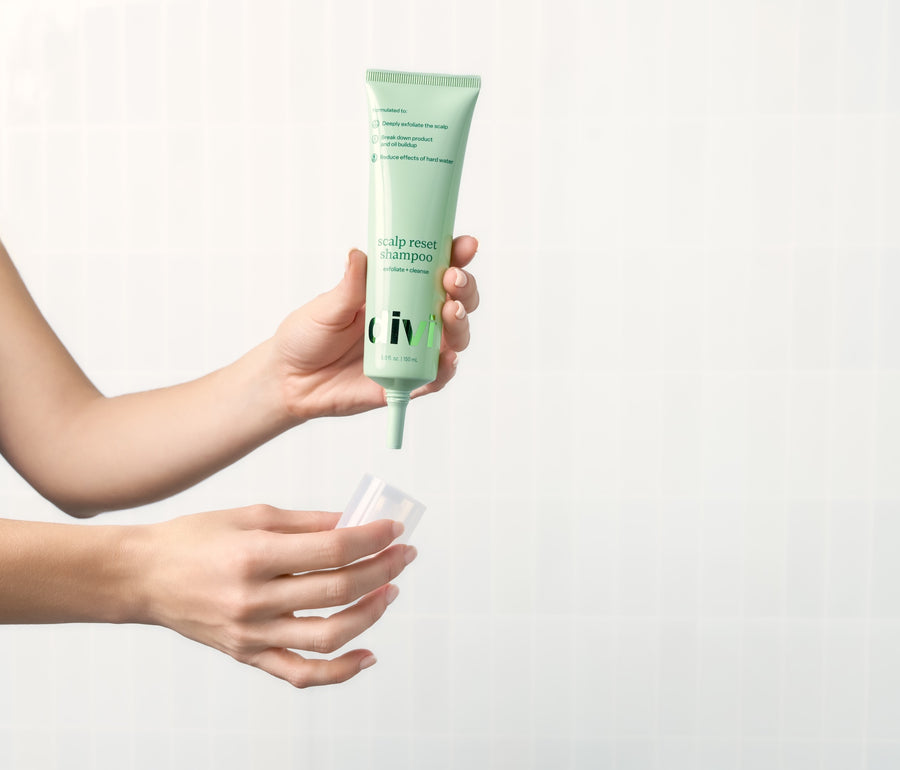
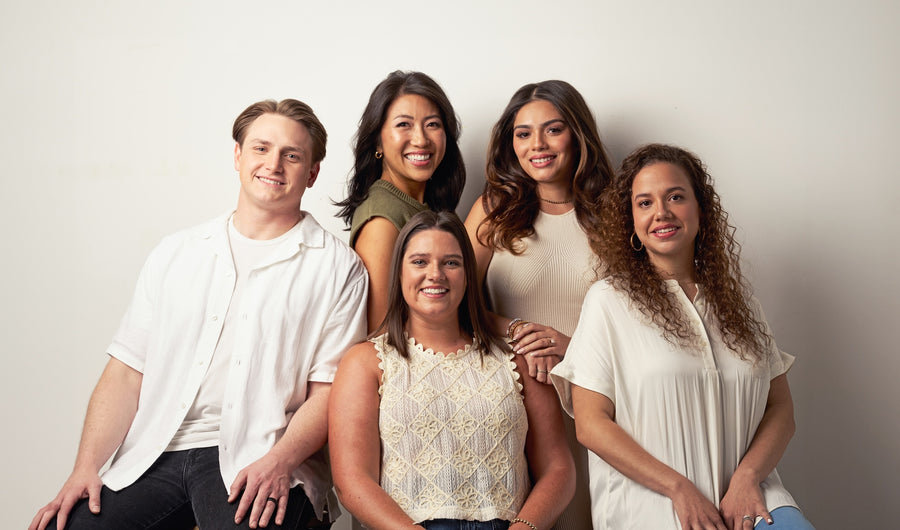
 Scalp Serum
Scalp Serum
 Scalp Reset Shampoo
Scalp Reset Shampoo
 Dry Shampoo
Dry Shampoo
 Best Sellers Bundle
Best Sellers Bundle
 Weekly Reset Duo
Weekly Reset Duo
 Root Touch Up
Root Touch Up
 Strand Plumping Styling Cream
Strand Plumping Styling Cream
 Root Reset Duo
Root Reset Duo
 3-in-1 Leave-In Conditioner
3-in-1 Leave-In Conditioner
 Air Dry Cream
Air Dry Cream
 Wash Day Essentials
Wash Day Essentials
 Frizz-Fighting Trio
Frizz-Fighting Trio
 Home & Away Dry Shampoo Bundle
Home & Away Dry Shampoo Bundle
 Volumizing Shampoo & Conditioner
Volumizing Shampoo & Conditioner
 Jumbo Volumizing Shampoo & Conditioner
Jumbo Volumizing Shampoo & Conditioner
 Volumizing Starter Bundle
Volumizing Starter Bundle
 Major Volume Bundle
Major Volume Bundle
 Volume Rescue Trio
Volume Rescue Trio
 Hydrating Shampoo & Conditioner
Hydrating Shampoo & Conditioner
 Whipped Repair Treatment Mask
Whipped Repair Treatment Mask
 Hydrating Starter Bundle
Hydrating Starter Bundle
 Hydration Heroes
Hydration Heroes
 Travel-Sized Volume Duo
Travel-Sized Volume Duo
 Travel-Sized Hydrating Duo
Travel-Sized Hydrating Duo
 Divi's Discovery Set
Divi's Discovery Set
